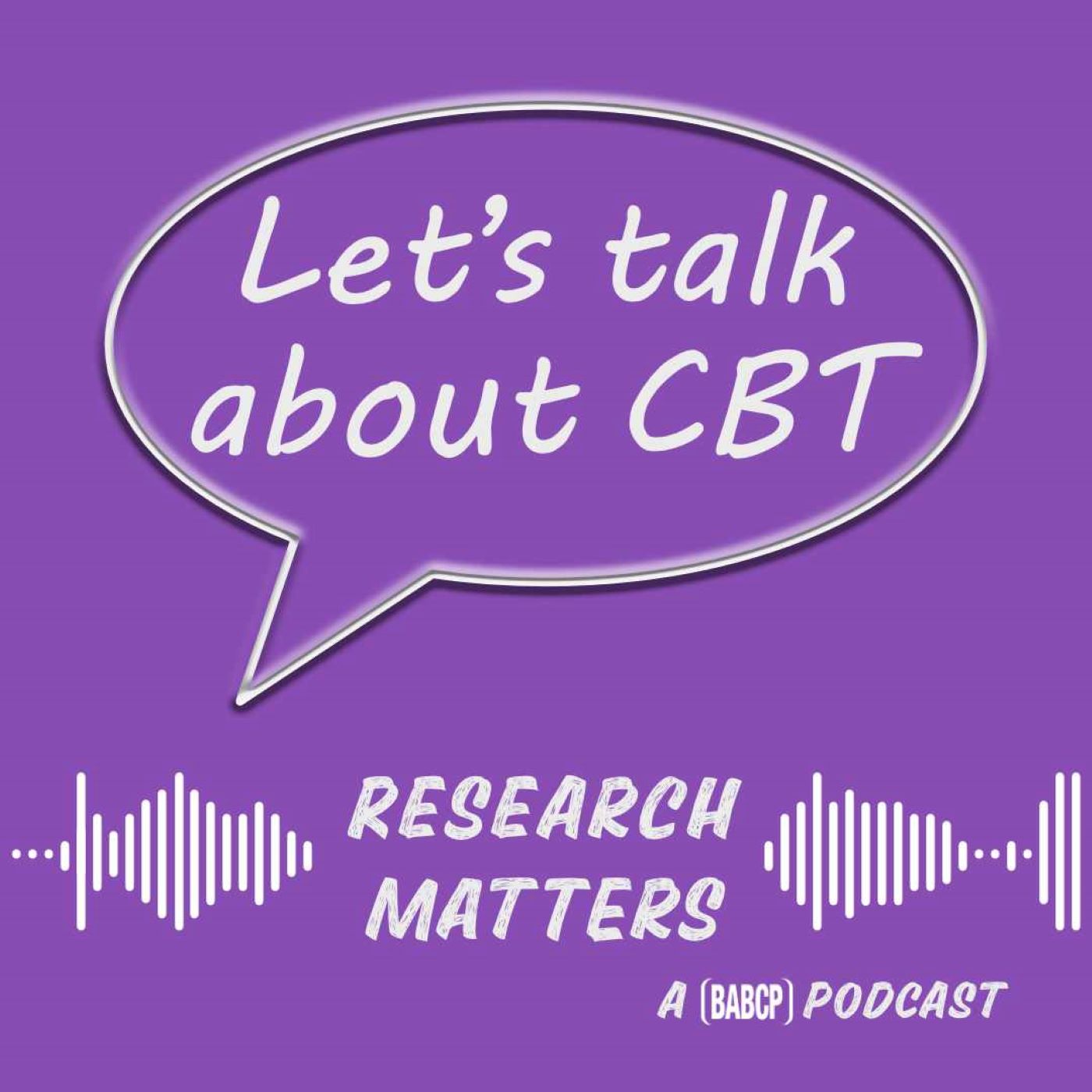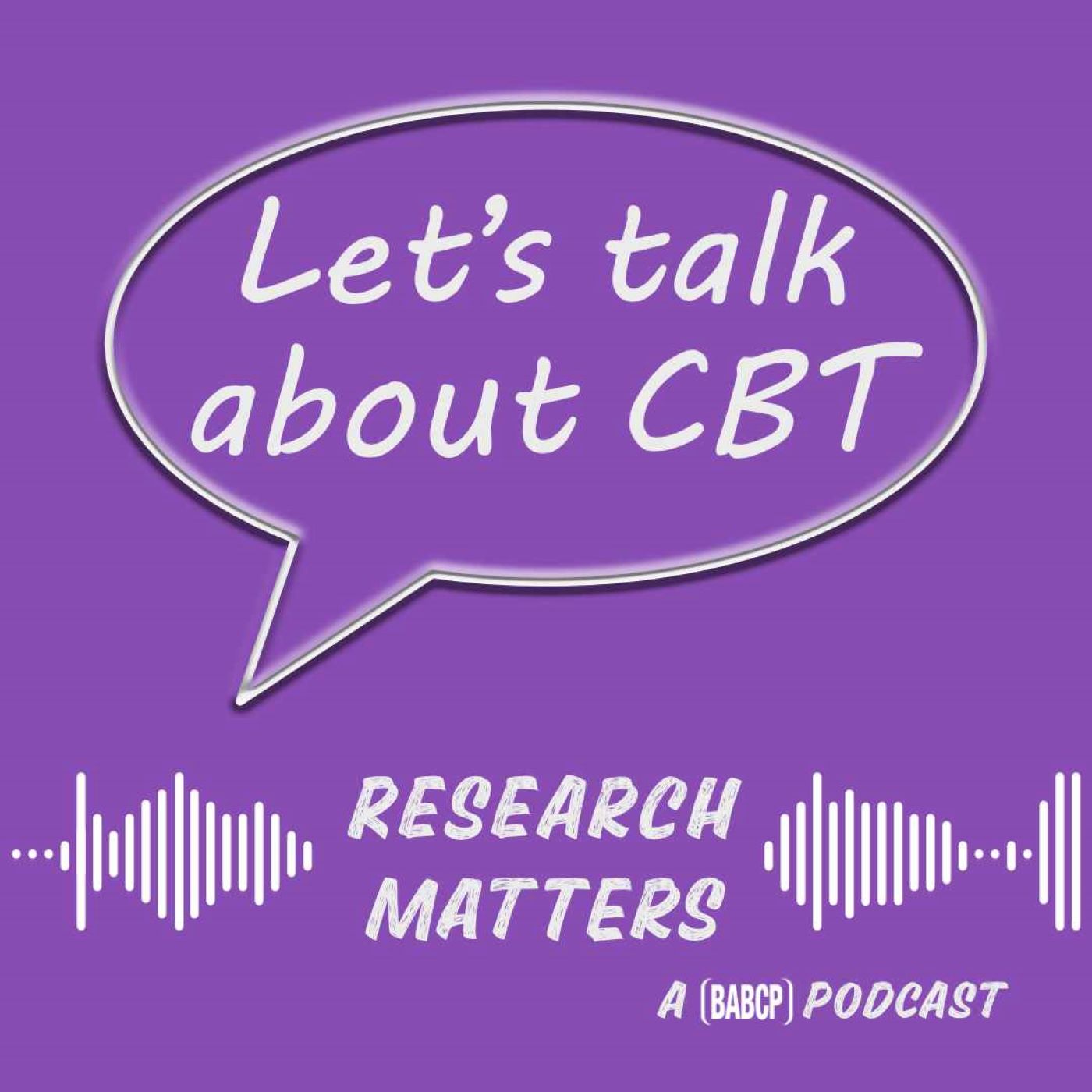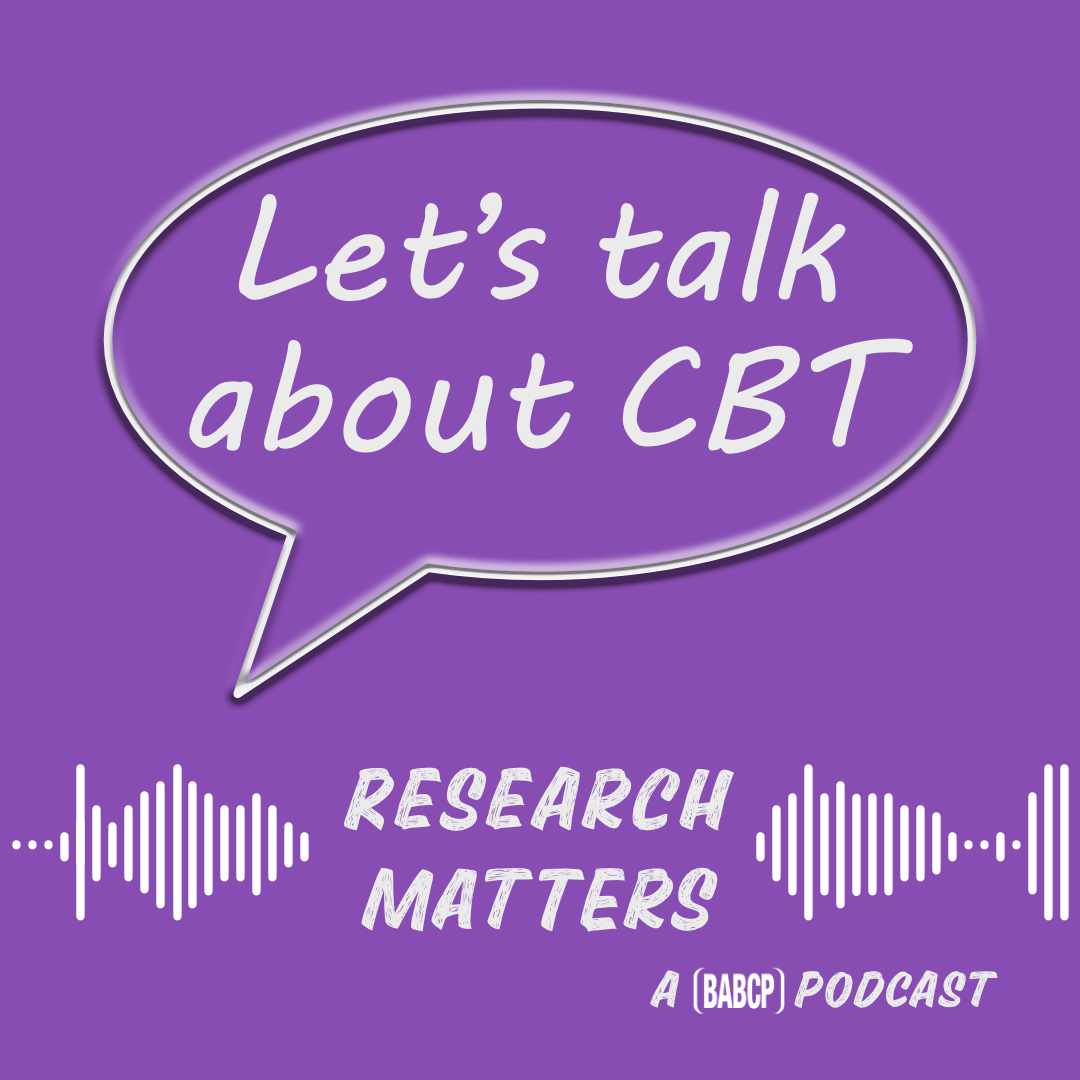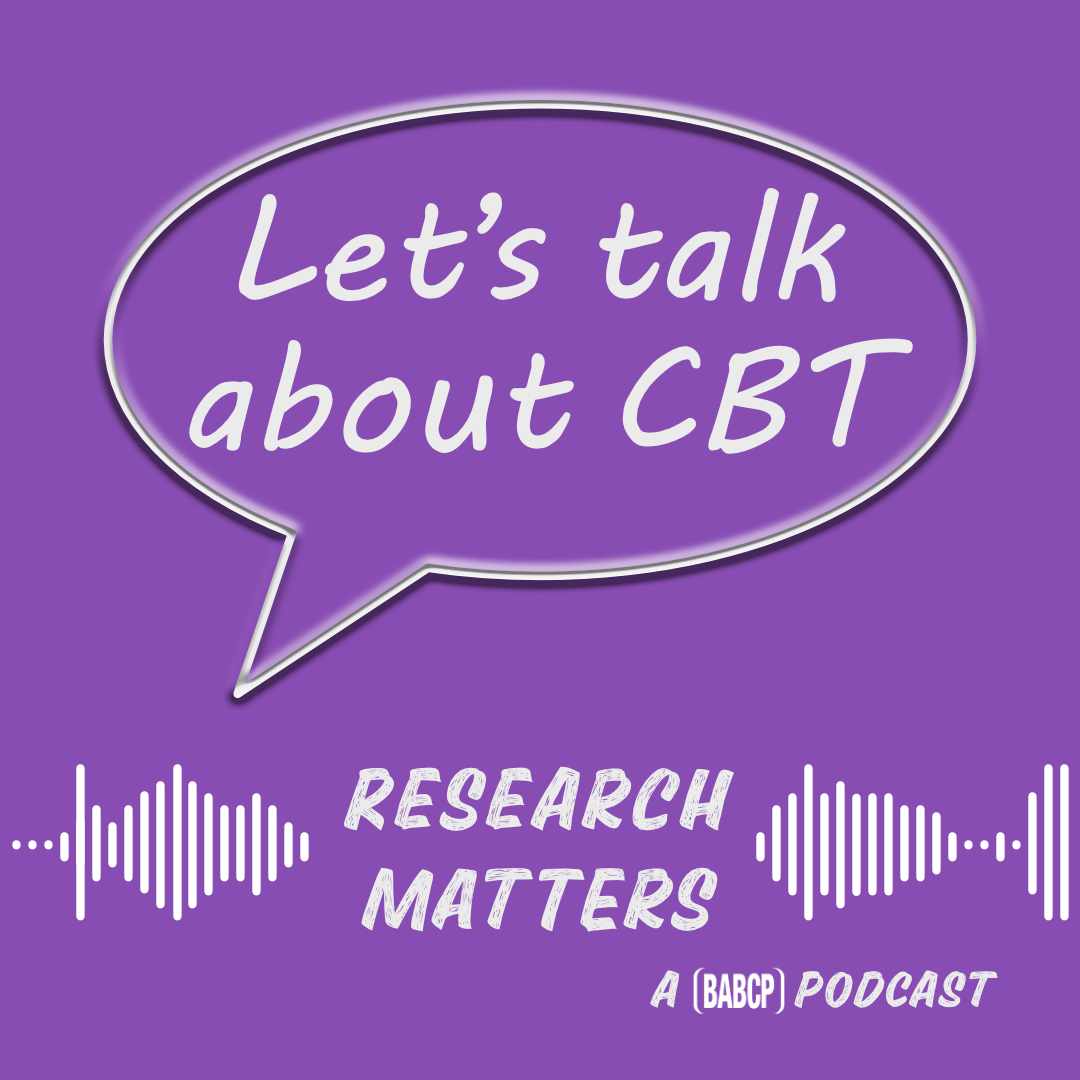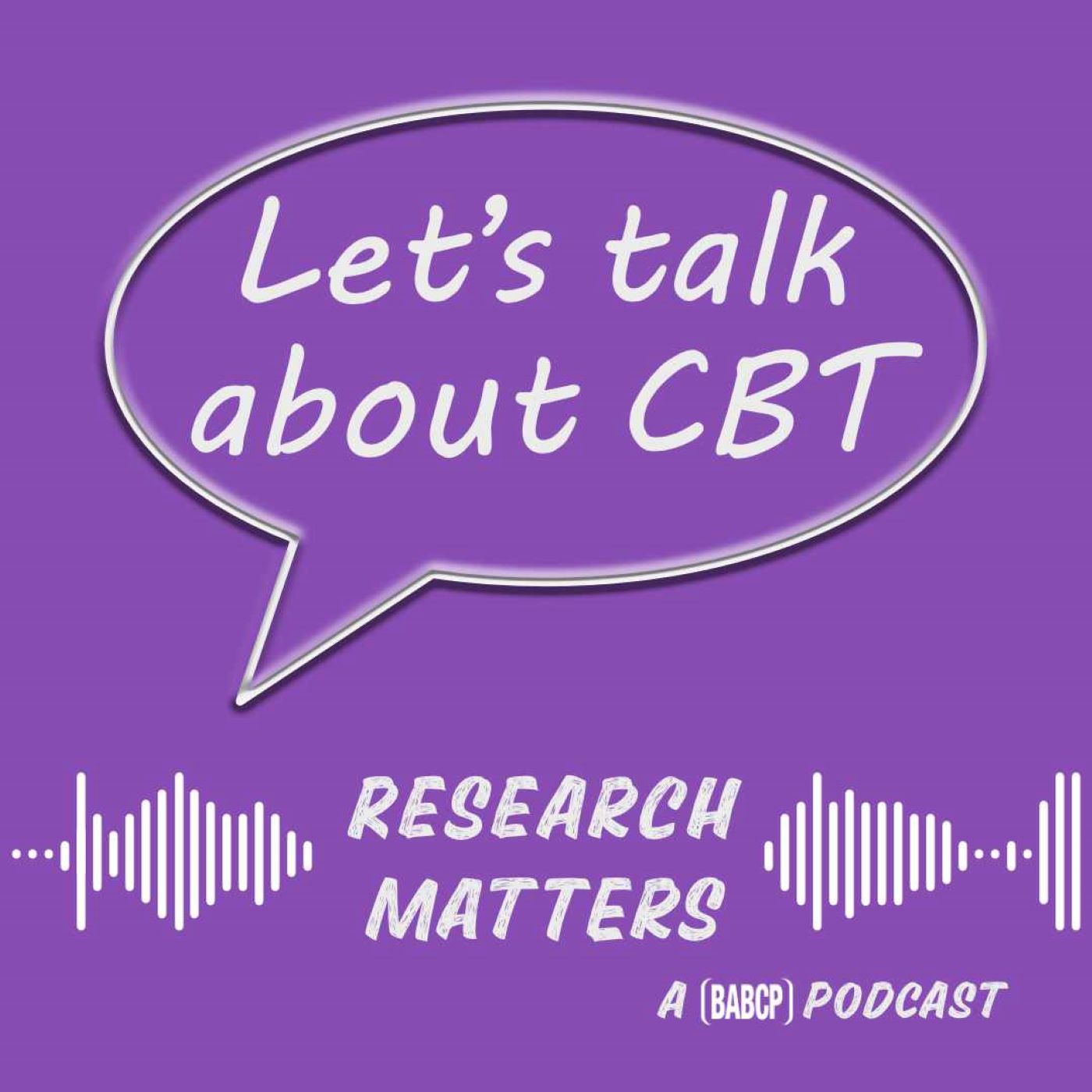Flashforward Mental Imagery in Adolescents with Dr. Alex Lau-Zhu
Description
In this episode of Research Matters, host Steph Curnow talks to Dr. Alex Lau-Zhu, lead author of the paper “Flashforward Mental Imagery in Adolescents: Exploring Developmental Differences and Associations with Mental Health,” published in Behavioural and Cognitive Psychotherapy.
Alex discusses his research into flashforward mental imagery—vivid mental pictures of future events that can be intrusive and emotionally powerful. We explore how these flashforwards relate to anxiety in adolescents, why mental imagery isn’t always a focus in CBT, and how young people may benefit from imagery-based interventions.
Guest Bio:
Dr. Alex Lau-Zhu is an MRC Clinician Scientist Fellow at the University of Oxford's Department of Experimental Psychology and a clinical psychologist supporting young people affected by trauma. His full list of publications and research areas can be found here: https://www.psy.ox.ac.uk/people/alex-lau-zhu
Links & Resources:
Read the paper: “Flashforward Mental Imagery in Adolescents: Exploring Developmental Differences and Associations with Mental Health” - https://bit.ly/3Eysxd0
Explore more from Behavioural and Cognitive Psychotherapy –https://www.cambridge.org/core/journals/behavioural-and-cognitive-psychotherapy
Find our sister podcasts and all our other episodes in our podcast hub here: https://babcp.com/Podcasts
Have feedback? Email us at podcasts@babcp.com
Follow us on Instagram & Bluesky: @BABCPpodcasts
Credits:
Music is Autmn Coffee by Bosnow from Uppbeat
Music from #Uppbeat (free for Creators!): https://uppbeat.io/t/bosnow/autumn-coffee
License code: 3F32NRBYH67P5MIF
Transcript:
Steph: Hello and welcome to Let’s Talk about CBT- Research Matters, the podcast that explores some of the latest research published in the BABCP journals with me Steph Curnow. Each episode, I'll be talking to a recently published author about their research, what was the motivation behind it and how they hope it will impact the world of CBT.
Today, I'm talking to Dr. Alex Lau-Zhu, Alex is lead author on the paper “Flash Forward Mental Imagery in Adolescence: Exploring Developmental Differences and Associations with Mental Health” which has been published in Behavioural and Cognitive Psychotherapy. I really enjoyed this chat with Alex. We talked all about his paper, and we also talked about maybe why mental imagery isn't explored so much with adolescents, or even in CBT in general. It's a really interesting listen, so I hope you all enjoy.
Hi Alex. Welcome to the podcast.
Alex: Hi Steph, thank you for having me.
Steph: You’re welcome. So, before we get into talking about your paper, would you mind introducing yourself to the listeners and telling us a little bit about who you are and the areas you work in?
Alex: Yeah, of course. I'm currently an MRC clinician scientist fellow at the Department of Experimental Psychology at the University of Oxford, and I also work as a clinical psychologist in our local county in Oxfordshire, supporting young people who are affected by trauma.
Steph: Thank you. So we're talking today about the paper that was published in the last issue of Behavioural and Cognitive Psychotherapy, which is about flash forward mental imagery in adolescents. So could you tell us a bit about how this paper came about? Was there any particular motivation for the research?
Alex: Yeah so I work with a lot of young people in my clinical work and often find that they sometimes struggle with expressing themselves, sometimes around identifying what goes on in their minds in particular, which is really a key part of doing CBT, for example. And speaking to other clinicians, also working with young people, it seems like actually sometimes they do find thinking on mental images perhaps a bit easier to thinking about, for example, using visual mediums or drawings to express how they feel and what they think, but sometimes it goes to be around talking about mental images that they experience inside their mind, just describing what is it that they see, what is it that they hear, as a way to then better understand some of those thinking processes or what we might call as distortions in CBT.
And that led me to think kind of more broadly around how much do we know about these sorts of processes in young people. And actually, we know incredibly little. There's some really I think exciting work that has happened in the last 20 or 30 years in working with adults and doing CBT with adults around thinking about mental images, not just verbal thinking. But that knowledge somehow hasn't really trickled down to working with young people as much. So I'm really curious more generally in, in understanding mental imagery in young people and whether that can help us improve our treatments.
Steph: And would you mind just explaining what flash forwards are for anyone who might not be aware of the term?
Alex: Yeah, I think it's probably a term that if once I explain what it means, then you might realise it's something that you're familiar with, you just perhaps haven't used this term to describe that before. So, the simplest way to think about it is the opposite of what a flashback would be. So a flashback is, you know, often a mental picture, often very visual, of the past, of a stressful, traumatic past event that just popped back into mind. So we think of flashforward as the almost the opposite of that. So again, mental images that just pop back. They're depicting something stressful and threatening, but they are about the future rather than about the past. And so perhaps another term that have been used in the literature or in clinical practice is intrusive images that are specific around the future.
So one example would be, let's say, perhaps, last night before coming to the podcast, I had a flash forward of being on this podcast and perhaps, I don't know, my, my voice breaking, the technology not working, you know, something happens and maybe it's going live and I could kind of see your face or the laptop running out of battery. That's what I can see in my mind. And naturally that if someone has a very sticky image like that, then it's going to be very anxiety provoking. But if we take that to clinical case, let's say with young people that I work with, they might have flash forwards of having to do a school presentation later in the week and feeling like people are not really paying attention because they find that presentation boring, maybe laughing at them for not really knowing perfectly what they're talking about. So that's perhaps that, that brings about in terms of social anxiety, for example, and we can think about different types of flash forwards of different content for a range of anxiety presentations.
Steph: Yeah, it's interesting you saying that mental imagery hasn't been explored in adolescents so much because you would imagine the kind of flash forwards being quite prominent in clients with OCD, for example, you would imagine that they would often quite have flash forwards about what might happen if I don't do this or if I don't do that. So it's interesting that in adolescents has not been explored so much.
Alex: Yeah, and I don't really know why exactly that's been the case. I think there's something about imagery work that, that, well, you know, by now we know that imagery can be really emotionally powerful, in our therapies. I’ve been reading actually some very old work by Aaron Beck, who was still developing CBT in the early 70s. And actually, I didn't know, maybe other people do know, but he had a psychoanalytic sort of background right before breaking into CBT. But a lot of his clinical work in the early stages of CBT used loads of imagery. So, asking his patients about imagery, finding ways to interrupt those images and manipulate those images, changing the ending of a lot of images, like the way you would do that in imagery rescripting, for example, for those who are familiar with that technique. He was doing a lot of that sort of, not typical kind of CBT techniques and somehow then that got lost as CBT became more developed and disseminated and other researchers, you know, expanded on that thinking. I don't really

